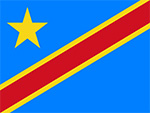SDG 6 IWRM Support Programme
(
Intergovernmental organization
)
#SDGAction43808
Description
Stage 1 – Identify challenges: Strengthen SDG 6.5 national monitoring and reporting frameworks, with a view to identifying critical areas for attention that hinder the development of IWRM at the national level. This stage is completed through the completion by national governments every three years of a survey on SDG indicator 6.5.1, designed to allow countries to evaluate their degree of implementation of IWRM.
Stage 2 – Formulate responses: Having identified a set of key challenges to the implementation of IWRM at the national level, Stage 2 aims to facilitate a government-led multi-stakeholder process to formulate and prioritise appropriate responses to these challenges. The result of Stage 2 is a government-owned multi-stakeholder IWRM Action Plan and road map to systematically guide the implementation of solutions to domestic IWRM issues; and
Stage 3 – Implement solutions: Support countries in implementing the designed IWRM solutions aimed at achieving SDG 6 and other water-related goals through the development of a series of attractive investment projects which contribute in a measurable way to helping countries to advance towards their SDG targets.
Each country assisted through stage 2 will have as an output a multi-stakeholder investment plan on water resources management which looks to measurably advance both SDG 6.5.1 and other water-related SDG targets. The exact targets focused on will depend from country to country, but should ideally include both those under SDG 6 and others. By assisting countries towards implementation of those plans, at the outcome level there should be a greater mobilisation of financial resources from multiple funding streams in support of the implementation of those plans, as well as an increase in their performance under the related SDG indicators, in an integrated and indivisible manner. Ultimately the expected impact of this assistance is the development of more sustainable societies, economies and natural environments. SDG goals and targets that are expected to advance as a result of SDG 6.5.1 acceleration actions are: - SDG 1 (1.5, 1.a, 1.b); -SDG 2 (2.4); - SDG 3 (3.9); - SDG 5 (5.a); SDG 6 (6.3, 6.4, 6.6, 6.a, 6.b); - SDG 10 (10.b); - SDG 11 (11.3, 11.5, 11.6, 11.b); - SDG 12 (12.2); - SDG 13 (13.1, 13.2, 13.3, 13.b); - SDG 15 (15.1, 15.3, 15.5, 15.9, 15.a); - SDG 16 (16.6, 16.7); - SDG 17.
GWP, UNEP-DHI Centre for Water and Environment, UNEP, Cap-Net, UNDP.
SDGS & Targets
Goal 6
Ensure availability and sustainable management of water and sanitation for all
6.1
By 2030, achieve universal and equitable access to safe and affordable drinking water for all
6.1.1
Proportion of population using safely managed drinking water services
6.2
By 2030, achieve access to adequate and equitable sanitation and hygiene for all and end open defecation, paying special attention to the needs of women and girls and those in vulnerable situations
6.2.1
Proportion of population using (a) safely managed sanitation services and (b) a hand-washing facility with soap and water
6.3
By 2030, improve water quality by reducing pollution, eliminating dumping and minimizing release of hazardous chemicals and materials, halving the proportion of untreated wastewater and substantially increasing recycling and safe reuse globally
6.3.1
Proportion of domestic and industrial wastewater flows safely treated
6.3.2
Proportion of bodies of water with good ambient water quality
6.4
6.4.1
Change in water-use efficiency over time
6.4.2
Level of water stress: freshwater withdrawal as a proportion of available freshwater resources
6.5
By 2030, implement integrated water resources management at all levels, including through transboundary cooperation as appropriate
6.5.1
Degree of integrated water resources management
6.5.2
Proportion of transboundary basin area with an operational arrangement for water cooperation
6.6
6.6.1
Change in the extent of water-related ecosystems over time
6.a
6.a.1
Amount of water- and sanitation-related official development assistance that is part of a government-coordinated spending plan
6.b
Support and strengthen the participation of local communities in improving water and sanitation management
6.b.1
Proportion of local administrative units with established and operational policies and procedures for participation of local communities in water and sanitation management
SDG 14 targets covered
| Name | Description |
|---|
Deliverables & Timeline
61 countries assisted to have a multi-stakeholder consultation on their current status of IWRM, as a means of identifying challenges and opportunities
A global status report on SDG 6.5.1 and relevant regional reports are produced and used as a springboard for advancing on IWRM
At least 40 countries have been assisted to define a multi-stakeholder IWRM Action Plan
At least 50 stage 3 activities traceable to the Support Programme are being implemented
Resources mobilized
Partnership Progress
Feedback
Action Network

Timeline
Entity
SDGs
Region
- Global
Geographical coverage
Other beneficiaries
In each country, the Support Programme brings together a unique blend of partners in each country, representing governments, civil society, academia and the private sector.
More information
Countries





















































Contact Information
Colin Herron, Global Coordinator, Water Solutions for the SDGs

